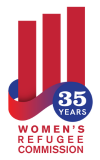The Women’s Refugee Commission (WRC) began its work protecting the rights and lives of refugee women and children 35 years ago. As we celebrate Women’s History Month this March, we’re taking a look back into our own history at moments where we examined a unique problem facing displaced women and children—oftentimes being the first within the humanitarian community to call out specific issues facing refugees.
Reproductive Health
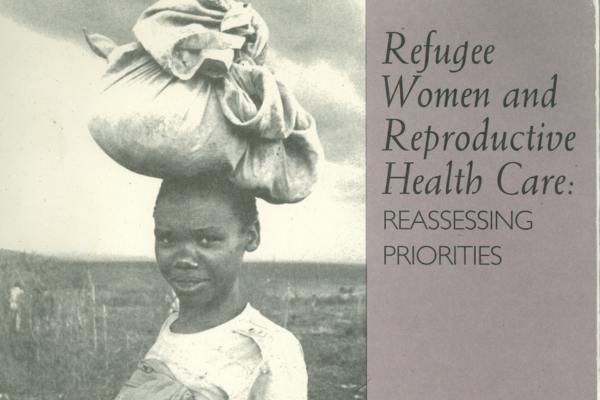
In 1994, WRC was among the first organizations to shine a light on the lack of family planning options available to displaced and refugee women globally. In most of the camps and cities where refugee women live, even their most basic health needs were not being met. WRC staff visited refugee settings in six countries—Côte d’Ivoire, Kenya, Pakistan, Belize, Thailand, Hong Kong—where women pleaded with us for contraceptive services, supplies, and information.
This work resulted in WRC’s first-of-its-kind report, “Refugee Women and Reproductive Health Care: Reassessing Priorities,” which was championed later that year at the landmark International Conference on Population and Development held in Cairo, Egypt. This work resulted in WRC helping to launch and coordinate the Reproductive Health Response in Crises Consortium. WRC became a leading member of a global working group to promote reproductive health in humanitarian settings.
Immigration Detention
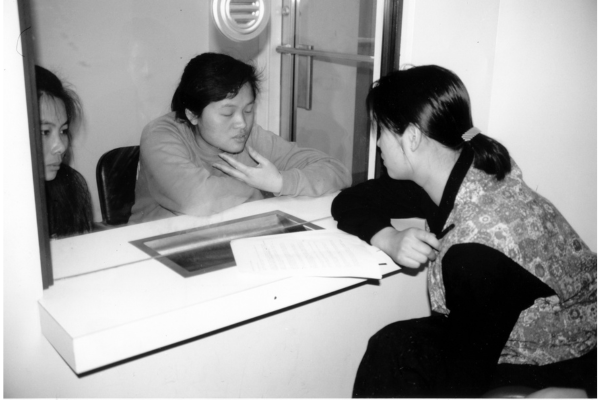
WRC staff spent two years investigating the conditions and treatment of women seeking asylum in the United States. This culminated in a 1997 report, “Liberty Denied: Women Seeking Asylum Imprisoned in the US,” featuring the WRC team’s findings: Asylum seekers who identified as women faced physical and verbal abuse in prisons used by the US Immigration and Naturalization Service (now known as Immigration and Customs Enforcement). Women seeking asylum frequently endured prolonged detention, and lived in conditions that not only failed to meet international principles of refugee protection, but also lacked basic standards of decency and compassion.
After the report was published, WRC called for fundamental reforms to immigration detention. While immigration detention remains a challenge in the US, WRC has continued to advocate for the rights of people in immigration detention, including pregnant individuals, and to push for policies that reduce the use of detention.
Firewood
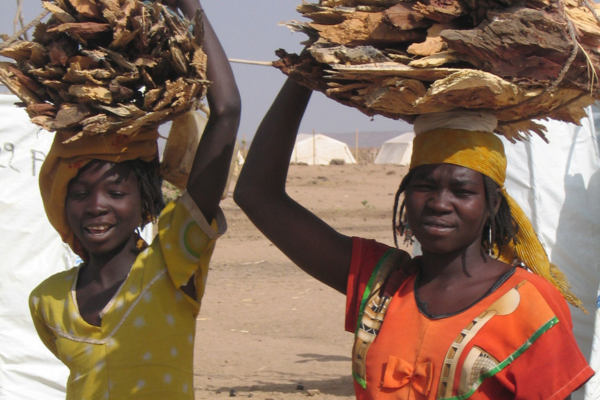
At refugee camps around the world, millions of women and girls venture out to collect firewood to cook for their families. During these trips, they face a high risk of violence, including rape, abduction, theft, and murder.
In 2006, WRC explored these risks in the report “Beyond Firewood: Fuel Alternatives and Protection Strategies for Displaced Women and Girls,” based on our research investigating methods for reducing risks of gender-based violence for refugee women and girls when collecting firewood. This was the first in-depth research ever done on these risks.
Two years after the report was published, WRC held an international conference on the issue, which brought together developers, practitioners, and users of alternative fuels and energy with humanitarian workers to develop strategies to protect refugees. WRC worked with partners to form the Inter-Agency Standing Committee Task Force on Safe Access to Firewood and Alternative Energy in Humanitarian Setting, which developed and disseminated tools and guidance so refugee women and girls can cook their food without risking their health and well-being.
Refugees with Disabilities
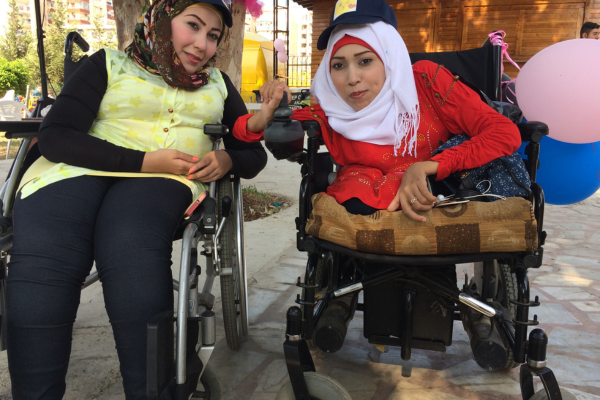
Refugees with disabilities are often the most neglected and socially excluded in their communities. Currently, about 17.6 million displaced people live with disabilities. WRC worked with partners, including the United Nations refugee agency (UNHCR), to address the needs of refugees with disabilities and to ensure their human rights are respected.
Our 2008 report “Disabilities Among Refugees and Conflict-affected Populations” takes a close look at how displacement affects refugees with disabilities. We found that essential services are often limited and programs that refugees with disabilities could benefit from are frequently not accessible to them.
WRC’s report was the first global study on challenges faced by refugees with disabilities. The report’s recommendations included making refugee camp infrastructure, shelter, and information more accessible to refugees with disabilities and promote full and equal access to mainstream services to people with disabilities. WRC created a resource kit for fieldworkers, with practical tips for those who work with refugees with disabilities on how to improve services for this community. We also influenced policy in crisis settings. For example, we advocated for the rights of displaced people with disabilities to be protected in the aftermath of the 2010 Haiti earthquake.
Family Separation
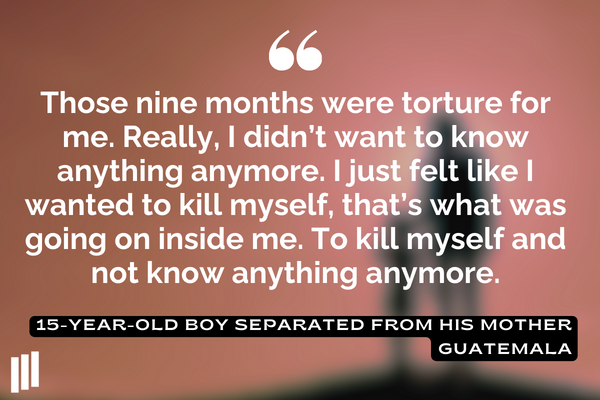
Under the Trump administration, the US enacted a policy to separate migrant children from their parents and families at the US-Mexico border. Prior to this policy, WRC had published a report documenting the harms of family separation. We co-led the filing of an administrative complaint to the US Department of Homeland Security expressing grave concerns over ongoing separations even before the policy was officially issued. WRC staff were part of a court-appointed Steering Committee responsible for conducting broad outreach to families and beginning the process of reuniting children whose parents and guardians had been sent to other countries. In total, 5,569 children were separated under the Trump administration. As of November 30, 2023, more than 1,000 remain separated from their parents.
In 2023, WRC featured the stories—in their own words—of parents and children separated under the policy, using interviews collected in collaboration with Barnard College. The parents and children described how they cope with the lasting effects of trauma, including post-traumatic stress disorder (PTSD) and challenges with day-to-day functioning as a direct result of their experience. In December, the Steering Committee’s legal mandate concluded, and the presiding judge publicly recognized and thanked WRC for our efforts to find separated parents.
The Women’s Refugee Commission is marking a major milestone—our 35th anniversary. Throughout 2024, we will celebrate our achievements at events, pay tribute to those who exemplify our vision, and, of course, continue our critical research and advocacy. Celebrate our 35th anniversary.


